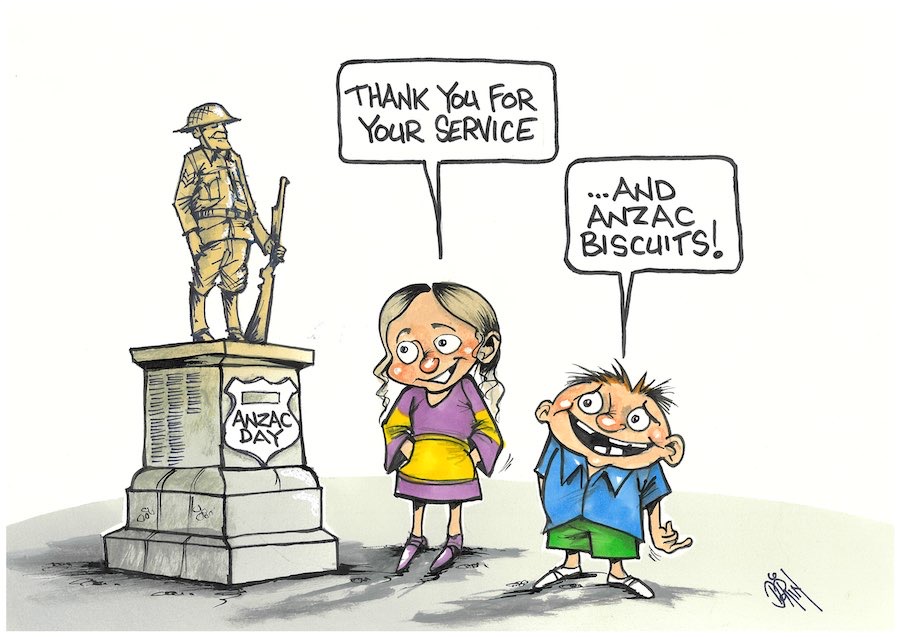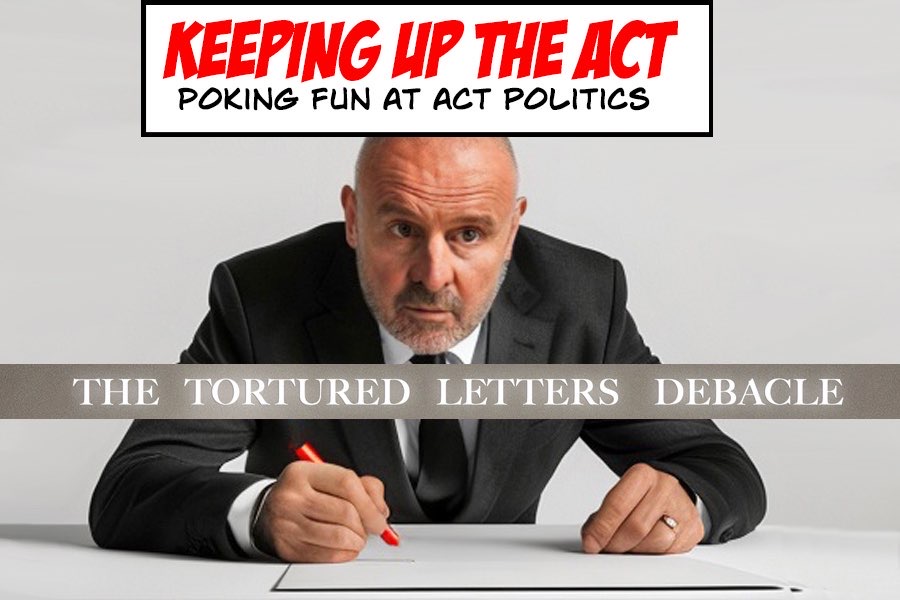Letter writer GREG CORNWELL says that when it comes to drugs, as a nation we’re unable to make up our minds what to do about a serious problem, “compensating for firm action with alternative options to soothe the concerns of a confused public”.
THE decision of an Assembly Labor MLA to introduce private member’s legislation to legalise small quantities of illicit drugs set me thinking about the inconsistencies of our attitude to the issue.
 We repeatedly are provided with publicity about successful drug interceptions by our Border Force or local police. We are occasionally told of either lengthy prison sentences for drug smugglers of large quantities of these substances or limited jail time for some celebrity, often sporting, so involved.
We repeatedly are provided with publicity about successful drug interceptions by our Border Force or local police. We are occasionally told of either lengthy prison sentences for drug smugglers of large quantities of these substances or limited jail time for some celebrity, often sporting, so involved.
And so what?
Despite these apparent successes, the scourge continues throughout society without real advances. Indeed, considerable efforts are made to excuse the drug problem as a health issue, a not unreasonable argument if we were doing more to defeat it, as we have with other human frailties such as smoking. But we are not.
True, alcohol and gambling also have destructive results, including criminal behaviour and social breakdown, but overall they’re in a minor league to that of drug addiction.
Insufficient attention has addressed why people turn to drugs and too much has concentrated upon the effect upon society.
Why do people turn to drugs? I don’t know and I’ve yet to see any explanation as to why people turn to drugs, surely a required step to fighting the problem.
Why are penalties soft? Our legal attitude to the death penalty obscures the truth that the kingpins of this illicit trade and their often well-funded mules threaten the lives of so many addicts, yet mortality figures are not published now, a strange way to fight an addiction.
We should either recognise this contradiction and reintroduce capital punishment for traffickers or tighten our laws so life sentences without parole are mandatory. How can you justify limited sentences for those who profit from death?
Society appears at odds with itself in the drug war. Everyone believes it is a horrible scourge, yet our approach to fighting it varies from being too soft on penalties and wanting to legalise at least small amounts (however that can be assessed!) and seeking increased funding for rehabilitation. Isn’t this admitting we cannot win the war, so we might as well live (and die) with it?
This latter argument also advocates government involvement with injecting clinics for addicts. How this might slow the number of users in the community is not explained nor how it would stop traffickers, unless the government was prepared to increase the dosage to those who wanted it.
Once again it appears we are unable as a nation to make up our minds what to do about a serious problem, compensating for firm action with alternative options to soothe the concerns of a confused public.
Greg Cornwell, Yarralumla
(Greg is a former Liberal MLA and Speaker in the Legislative Assembly).
Shared concerns of housing affordability
I SHARE with columnist Jon Stanhope the concerns he raises about housing affordability in Canberra (“ACT government pulls the levers on widening inequity”, CN August 5).
I remember buying my first (ex-government) house in Canberra and that it cost about six times my salary at the time. It was such a struggle to meet the repayments that we went without many things. It was about all we could do to afford petrol so we could go for picnics to the Cotter and down by the lake. I am sure mine is not a unique story. We paid off the house and eventually moved on to a bigger one where I still live.
The internet tells me that in Canberra the average house size is the largest in the country exceeding over 250 square metres.
This is well over twice the size of my first home and also much larger than my second.
Today people’s expectations are so high. People are knocking down houses in our suburbs to replace them with dwellings that are larger than their parents and grandparents ever owned.
The demolished houses that were once good enough to raise a family in, are, apparently, no longer adequate. However, if one looks at smaller houses in the not-so-expensive suburbs, guess what, they are about six times the salary rate for the equivalent pay level that I was earning when I bought my first house.
Jon Stanhope refers to people who travel from interstate to work in Canberra. The clue is in the fact that they have jobs. I lived in Queanbeyan to save for a house deposit. Others live there long term maybe due to housing affordability. Yet others live over the border on quite pleasant semi-rural blocks. Some are attracted by the perceived advantages of freehold title. These are choices that working people make.
But Mr Stanhope offers no viable suggestions on how to address his concerns. Housing availability is not likely to be solved by just making more land available. To encourage investment and affordability it must be attractive for investors to sink money into housing.
In Canberra, I know someone who has sold his investment property due to land-tax impositions. Concerns about bad tenants have also knocked another investor I know of out of an investment property. It seems logical that ultimately the open market will determine housing prices and availability. It will always be a struggle for many to get a foot on the property ownership ladder or to acquire suitable rentals just as it has always been.
I would like to hear what other readers think on this topic and what remedies they might offer.
Stephen James, Chisholm
Plea to quieten a noisy neighbour
HELP! My wife and I are in our mid-80s. We have lived in our own home in a very quiet street in Curtin for more than 50 years.
Our neighbours opposite have a son in his 20s. After leaving school, he’s gone into the building industry and has a large SUV-type vehicle in support of his job.
Problem is, he starts very early to go to work, as early as 6.40am, and so I am awakened early, too, despite the fact we sleep at the rear of our house.
I have spoken with his father and complained to him in writing for months, but all in vain.
Question is, what can I do about it? I wouldn’t like to think this is going on for the rest of my life – what there is of it.
What are my options? Has anyone else had a similar problem and how did they manage to solve it? Legally? Peacefully?
M McGregor, Curtin
(Readers with suggestions, please email editor@citynews.com.au)
Cyclists are reckless, too
I THOUGHT it appropriate that the police said they will also be “looking for cyclists” doing the wrong thing on our roads (“Police turn their focus to the safety of cyclists”, citynews.com.au, August 2).
Yes, reckless motor vehicle users are on our roads, but I argue there is also a fair share of cyclists that fall into that same category.
I have seen many times cyclists go through a stop sign or red light because they must think that only applies to cars.
I understand that cyclists don’t even need evidence that they know the road rules. Is there an age restriction on riders? – can a 10-year-old go for a cycle down a major road?
Like me, I think many readers of this letter could tell a story or two that relate to bad experiences with cyclists on the road.
I hope the increasing popularity of in-car video recorders proves the blame doesn’t always automatically fall on the motor vehicle driver.
Please know that I am not having a go at recreational riders that enjoy exercise by riding around the lake, mountain bike riding or having a casual cruise on the bike paths.
If you ride on the road then it’s your choice, however it’s not a chance with my safety I would ever take.
Bjorn Moore, Gowrie
Pothole concerns go unheeded
THE land under the Southern Cross is what Australia is also known as, so I presume that the road from Holt golf course to Coulter Drive, Belconnen, was called Southern Cross Drive to honour this fact.
If our land is in such disrepair as Southern Cross Drive, I don’t give us much hope.
You start at one end and play dodgem all the way down to the other end. There are roadworks signs along the way that have been there for months but no roadworks (if you see someone working there take a picture as it could be a collector’s item) and worst of all potholes in the road that you could lose your car in.
I actually saw someone patching them up the other day and wonder what they were using as it must have been the shredded paper from City Services and tar as it rained the next day and, behold, the potholes have appeared again.
I have written two letters to my local Liberal MLA (still waiting for an acknowledgement) and two to City Services about this matter, but as usual the silence is deafening.
I wonder if I should pay my rates or road tax this year, because if an accident should occur due to the poor condition of the road will our illustrious local government bear the costs?
Errol Good, Macgregor
Take kindness ever forward
SOCIAL researcher and psychologist Hugh Mackay’s final book is excitingly titled “The Kindness Revolution” (“Hugh’s calling for a revolution … of kindness”, CN August 5).
He emphasises that we are a social species, and that during disasters such as the pandemic many of us are especially kind to one another. Why, kindness has even spread to competitors at the Olympics!
However, humanity must take kindness ever forward as in a revolution. Science is at the centre of deadly climate change for understanding and solving it, but kindness and compassion must be there, too, for all humans and other species. We urgently need our leaders and all associated with the fossil fuel industry to know and feel this.
It will be incredibly wonderful and important to see this culminate at the UN’s historic global agreement COP26 in early November. It will be a giant step forward for a better world for humankind.
Barbara Fraser, Burwood, Victoria
Dim forms of looming new towers
IN the latest publicity graphics for light rail stage 2a (Civic to Commonwealth Park), the dim forms of new buildings sheepishly appear, lurking in the south-west sector of the City Hill precinct.
They’re bulky, close together, and tall; and they’ll block prospects of the lake and mountains beyond, as well as views into the hilltop park. And there’ll be more to come, including in the south-east precinct, and down and along Commonwealth Avenue.
For those who, in support of development there, invoke Griffin’s depictions, the proposed development is nothing like his suggested built forms.
Canberra’s planners in the ’60s opted for an open-space character for the hill precinct, and chose fine grassed “clover-leaf” road arrangements in the southern parts of City Hill. They work well, and respect the Central National Area ambience; and we should respect their engineering and urban-design heritage, and not permit development there (certainly not private residential) – especially given the way some property developers are given free rein here.
Jack Kershaw, Kambah
Who can be trusted?
In a world of spin and confusion, there’s never been a more important time to support independent journalism in Canberra.
If you trust our work online and want to enforce the power of independent voices, I invite you to make a small contribution.
Every dollar of support is invested back into our journalism to help keep citynews.com.au strong and free.
Thank you,
Ian Meikle, editor





Leave a Reply